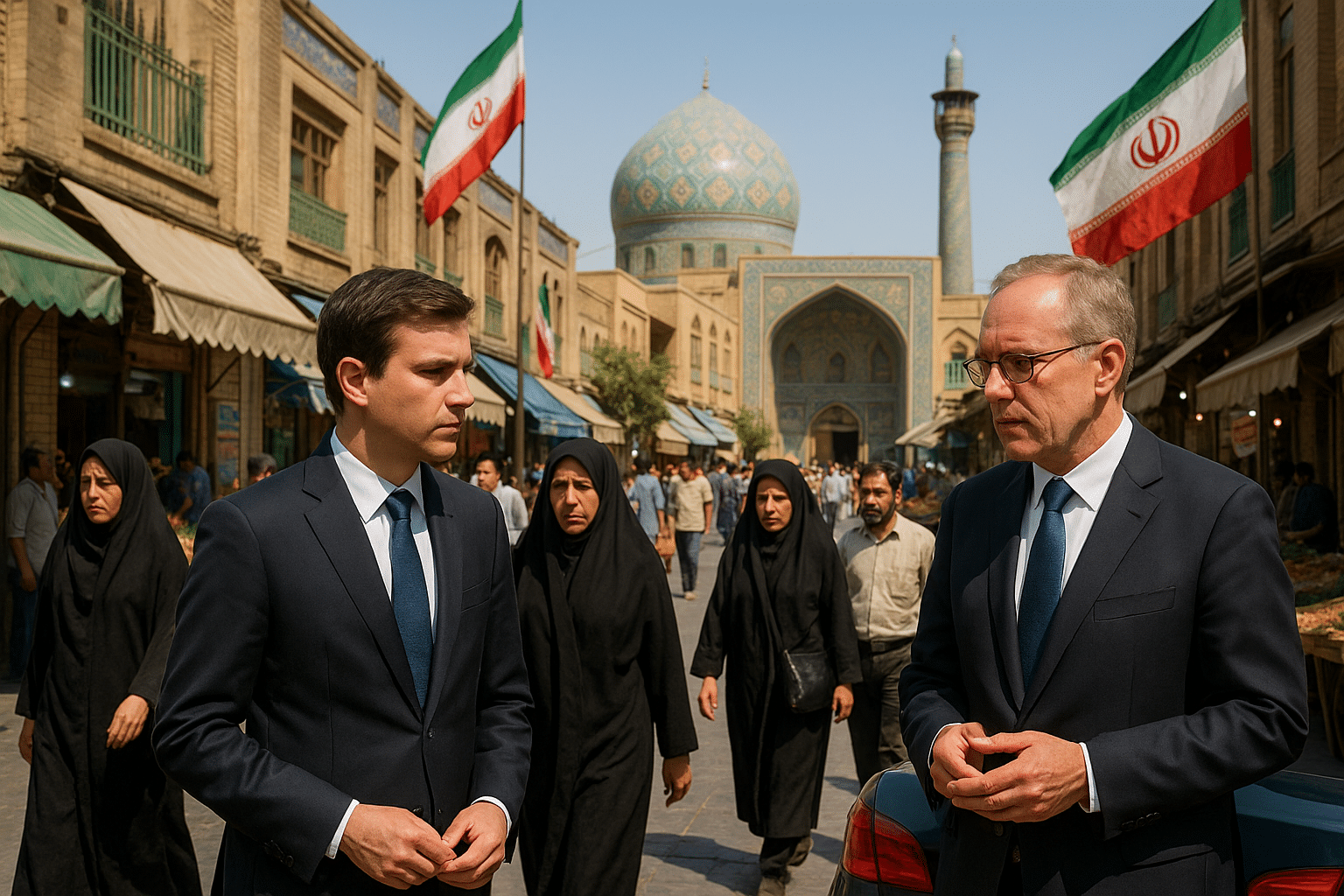Ads
US Shakes Iran: Global Impact
In an interconnected world, episodes of geopolitical tension have the potential to affect international balance.
Ads
The escalating dispute between the United States and Iran has reached a level beyond its borders, generating economic, political, and social repercussions globally.
Although the rivalry between the two countries has deep roots, recent events have heightened concerns, raising questions about the potential consequences.
Ads
From economic sanctions to strategic maneuvers, every move in this arena impacts international politics.
In addition to the United States and Iran, key players such as Russia, China, and several Middle Eastern countries are also closely watching every development.
The impact on the energy market, international trade, and global security keeps the world on tenterhooks.
In this analysis, we will review the historical background, the recent causes of the escalation, and possible future scenarios for this tense relationship, which could redefine the geopolitical landscape for the coming decades.
Decades of mistrust: the origins of rivalry
Relations between the United States and Iran have been marked by decades of tension.
SEE ALSO:
- Perfect Nails: Download and Shine
- Reduce inflammation with delicious teas
- Discover your history with MyHeritage
- Leading Banks for Loans
- Tea and TEA: Control your Blood Pressure
Since the 1979 Islamic Revolution, which overthrew the Shah, a former US ally, the two countries have maintained opposing positions.
Economic sanctions, Iran's involvement in regional affairs, and its nuclear program have been recurring points of contention.
- Islamic Revolution (1979): regime change and severance of diplomatic relations.
- Hostage crisis (1979–1981): detention of US diplomats for over a year.
- Iranian nuclear development: concerns about the possible proliferation of nuclear weapons.
- Regional influence: Iran's support for armed groups in Lebanon, Syria, and Yemen.
This historical environment fostered a climate of mistrust where every action is interpreted with extreme caution.
Examples such as the elimination of General Qassem Soleimani in 2020 show how strategic decisions generate forceful responses from Iran.
International reactions to the US intervention
The recent US operation in Iran generated a wide range of responses.
While some governments supported Washington's decision as a necessary measure, others expressed concern about the potential consequences for regional stability.
- Saudi Arabia: showed support for the US position.
- Iraq: rejected the action, considering it a violation of its sovereignty.
- European Union: called for moderation and dialogue.
- Russia and China criticized the intervention, calling it a provocative measure.
International organizations, such as the UN, urged both sides to seek diplomatic solutions to avoid further escalation.
In an already complex global context, the possibility of new episodes of instability in the Middle East is a source of concern for the international community.
The Iranian response: firmness and seeking alliances
In response, Iranian authorities have issued strong warnings and expressed their intention to take action.
These statements seek to project national unity and demonstrate responsiveness to external pressures.
Strategies adopted by Iran:
- Military strengthening: increased defensive maneuvers and coordination with regional allies.
- Strategic diplomacy: rapprochement with countries such as Syria, Russia and China to consolidate international support.
- National unity: use of state media to promote social cohesion in the face of external pressures.
These actions seek to send a message of strength to the United States and its partners, although their long-term effectiveness will depend on how the situation develops.
Economic impact: consequences for oil and global trade
The US operation also has significant economic implications, particularly in the energy sector.
Any destabilization in the Middle East could lead to abrupt fluctuations in oil prices.
Market reactions:
- Brent crude oil prices rose after the operation.
- Global companies adjusted their financial projections.
- Emerging economies, highly dependent on oil, face additional risks due to price volatility.
Furthermore, previous economic sanctions had already weakened the Iranian economy, limiting its energy export capacity and access to international markets.
Internal and international perceptions
In Iran, recent events have been used by the government as a means of national cohesion, although there are sectors that criticize official policies for their ongoing confrontation with the West.
- Part of the population supports the government in defense of sovereignty.
- Other sectors are showing frustration at the growing economic difficulties.
- Some opposition groups are seeking to exploit internal discontent to promote political reforms.
At the international level, opinions remain divided.
While some support US actions as preemptive measures, others warn of the risk of further deteriorating regional stability.
Perspectives on international mediation
The future of relations in the Middle East remains uncertain.
Each new episode increases the possibility of further deterioration, forcing international actors to redouble diplomatic efforts.
- Dialogue: the only viable way to defuse the current level of tensions.
- Interests of great powers: The position of actors such as the United States, Russia and China will be decisive.
- Humanitarian impact: Any worsening would have direct consequences for the civilian populations.
The international community faces the challenge of acting swiftly and effectively to prevent the current crisis from escalating into a more serious situation.

The growing rivalry
In short, the growing rivalry between the United States and Iran, exacerbated by the recent US intervention, highlights a complex network of historical and political factors that, over decades, have shaped a scenario prone to tension.
Mutual distrust—which began with the 1979 Islamic Revolution and deepened by episodes such as the hostage crisis—serves as a backdrop to the current situation.
The repercussions of this episode extend far beyond the region, generating diverse reactions from governments and international organizations, ranging from support to condemnation.
Iran's reaction, characterized by firm statements and a search for regional alliances, reflects its determination not to passively accept external pressures.
This scenario generates a continuous cycle of actions and responses that could lead to a larger crisis, jeopardizing regional stability.
Diplomacy therefore takes on a central role.
It is essential that the international community firmly promote channels of dialogue and collaboration, preventing these tensions from escalating into scenarios with unpredictable consequences.
Ultimately, the search for peaceful solutions is not only desirable but essential to ensuring a stable and secure future for all parties involved.
EXTERNAL LINKS:
No related posts.



